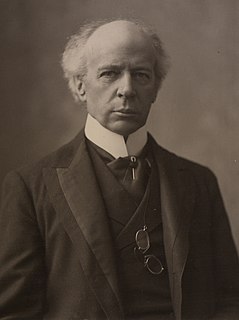Ein Zitat von Aristoteles
Dem, was den meisten gemeinsam ist, wird die geringste Sorgfalt zuteil. Jeder denkt hauptsächlich an sein eigenes, kaum an das gemeinsame Interesse; und nur, wenn es ihn selbst als Individuum betrifft. Denn abgesehen von anderen Erwägungen neigt jeder eher dazu, die Pflicht zu vernachlässigen, die er von einem anderen erwartet.
Verwandte Zitate
So ist der Zustand jedes Zeitalters, jedes Geschlechts und jeder Lage: Alle haben ihre Sorgen, entweder aus der Natur oder aus Torheit; und wer daher geneigt ist, einen anderen zu beneiden, sollte bedenken, dass er den wirklichen Zustand, den er erreichen möchte, nicht kennt, aber sicher ist, dass er durch die Befriedigung einer bösartigen Leidenschaft das Glück schmälern muss, das seiner Meinung nach bereits zu spärlich geschenkt wird.
Da die ganze Stadt ein Ziel hat, ist es offensichtlich, dass die Bildung für alle gleich sein sollte und dass sie öffentlich und nicht privat sein sollte – nicht wie heute, wo sich jeder getrennt um seine eigenen Kinder kümmert und gibt sie trennen den Unterricht von der Art, die er für am besten hält; Die Ausbildung in Dingen, die von gemeinsamem Interesse sind, sollte für alle gleich sein. Wir dürfen auch nicht annehmen, dass einer der Bürger sich selbst gehört, denn sie gehören alle zum Staat und sind jeweils ein Teil des Staates, und die Fürsorge für jeden Teil ist untrennbar mit der Fürsorge für das Ganze verbunden.
Die Sorge um die Seele eines jeden Menschen liegt bei ihm selbst. Was aber, wenn er die Pflege vernachlässigt? Was wäre, wenn er die Sorge um seine Gesundheit oder sein Vermögen vernachlässigen würde, was eher den Staat betreffen würde? Wird der Richter ein Gesetz erlassen, das verhindert, dass er arm oder krank ist? Gesetze schützen vor Verletzungen durch andere; aber nicht von uns selbst. Gott selbst wird die Menschen nicht gegen ihren Willen retten.
Die Vernunft kann für den Menschen keinen anderen Zustand wünschen als den, in dem nicht nur jeder Einzelne die absolutste, grenzenloseste Freiheit genießt, sich aus sich heraus in wahrer Individualität zu entwickeln, sondern in dem auch die physische Natur keiner anderen Gestaltung durch den Menschen bedarf Hände als das, was ihr jeder Einzelne freiwillig gibt, je nach dem Maß seiner Wünsche und Neigungen, begrenzt nur durch die Grenzen seiner Energie und seiner Rechte.
Reine Gemeinschaft ist für keinen Willen von Interesse; aber eine Gemeinschaft, die ein gemeinsames Wohl verfolgt, ist von höchstem Interesse für alle Willen; und was wir hier gesagt haben, ist, dass, was auch immer die Natur dieses Gemeinwohls sein mag, es die Entwicklung individueller Kräfte als Vorbedingung für alle anderen Güter beinhalten muss.
Dass die Rede der Selbstoffenlegung übersetzbar sein sollte, erscheint mir sehr seltsam, aber ich bin überzeugt, dass dies der Fall ist. Die Schlussfolgerung, die ich daraus ziehe, ist, dass die einzige Eigenschaft, die alle Menschen ausnahmslos besitzen, Einzigartigkeit ist; andererseits impliziert jedes Merkmal, das ein Individuum mit einem anderen gemeinsam hat, wie etwa rote Haare oder die englische Sprache die Existenz anderer individueller Eigenschaften, die diese Klassifizierung ausschließt.
Es ist das Interesse eines jeden Menschen, so bequem wie möglich zu leben; und wenn seine Bezüge genau die gleichen sein sollen, unabhängig davon, ob er eine sehr mühsame Pflicht erfüllt oder nicht, ist es sicherlich sein Interesse, zumindest im gemeinen Sinn von Interesse, es entweder ganz zu vernachlässigen oder, wenn er dazu verpflichtet ist, es zu vernachlässigen eine Autorität, die es ihm nicht erlaubt, dies zu tun, es auf eine so nachlässige und schlampige Art und Weise auszuführen, wie es diese Autorität zulässt.
Wir sind hier eine Nation, die sich aus den heterogensten Elementen zusammensetzt – Protestanten und Katholiken, Engländer, Franzosen, Deutsche, Iren, Schotten, jeder mit seinen Traditionen, mit seinen Vorurteilen. In jedem dieser widersprüchlichen antagonistischen Elemente gibt es jedoch einen gemeinsamen Punkt des Patriotismus, und die einzig wahre Politik ist die, die diesen gemeinsamen Patriotismus erreicht und ihn in allen Richtungen für gemeinsame Ziele und gemeinsame Bestrebungen zum Schwingen bringt.
Was uns verbindet, ist nicht eine gemeinsame Bildung, eine gemeinsame Rasse, ein gemeinsames Einkommensniveau, eine gemeinsame Politik, eine gemeinsame Nationalität, ein gemeinsamer Akzent, ein gemeinsamer Beruf oder irgendetwas anderes dieser Art. Christen kommen zusammen, weil sie alle von Jesus selbst geliebt wurden. Sie sind eine Gruppe natürlicher Feinde, die sich um Jesu willen lieben.
Jeder Einzelne ist ständig bestrebt, für das ihm zur Verfügung stehende Kapital die vorteilhafteste Beschäftigung zu finden. Es ist in der Tat sein eigener Vorteil und nicht der der Gesellschaft, die er im Auge hat. Aber das Studium seines eigenen Vorteils führt ihn natürlich oder vielmehr zwangsläufig dazu, die Beschäftigung zu bevorzugen, die für die Gesellschaft am vorteilhaftesten ist ... Er beabsichtigt nur seinen eigenen Gewinn und wird dabei, wie in vielen anderen Fällen, von einem geleitet unsichtbare Hand, um ein Ziel voranzutreiben, das nicht Teil seiner Absicht war
Obwohl die Menschen ein gemeinsames Schicksal haben, muss zunächst jeder Einzelne in Angst und Zittern sein persönliches Heil für sich selbst erarbeiten. Zweifellos können wir einander dabei helfen, den Sinn des Lebens zu finden. Letztlich aber ist es die Verantwortung des einzelnen Menschen, sein Leben selbst zu leben und „sich selbst zu finden“. Wenn er weiterhin seine Verantwortung auf jemand anderen abwälzt, gelingt es ihm nicht, den Sinn seiner eigenen Existenz herauszufinden. Du kannst mir nicht sagen, wer ich bin, und ich kann dir nicht sagen, wer du bist. Wenn Sie Ihre eigene Identität nicht kennen, wer wird Sie dann identifizieren?
Jeder Mensch hat Erinnerungen, die er nicht jedem erzählen würde, sondern nur seinen Freunden. Er hat andere, die er nicht einmal seinen Freunden, sondern nur sich selbst verraten würde, und das im Verborgenen. Aber schließlich gibt es noch andere, vor denen man sich überhaupt nicht zu sagen scheut, und jeder anständige Mensch hat eine beträchtliche Menge solcher Dinge auf Lager. Das heißt, man kann sogar sagen: Je anständiger er ist, desto mehr solcher Dinge kommen ihm in den Sinn.






































